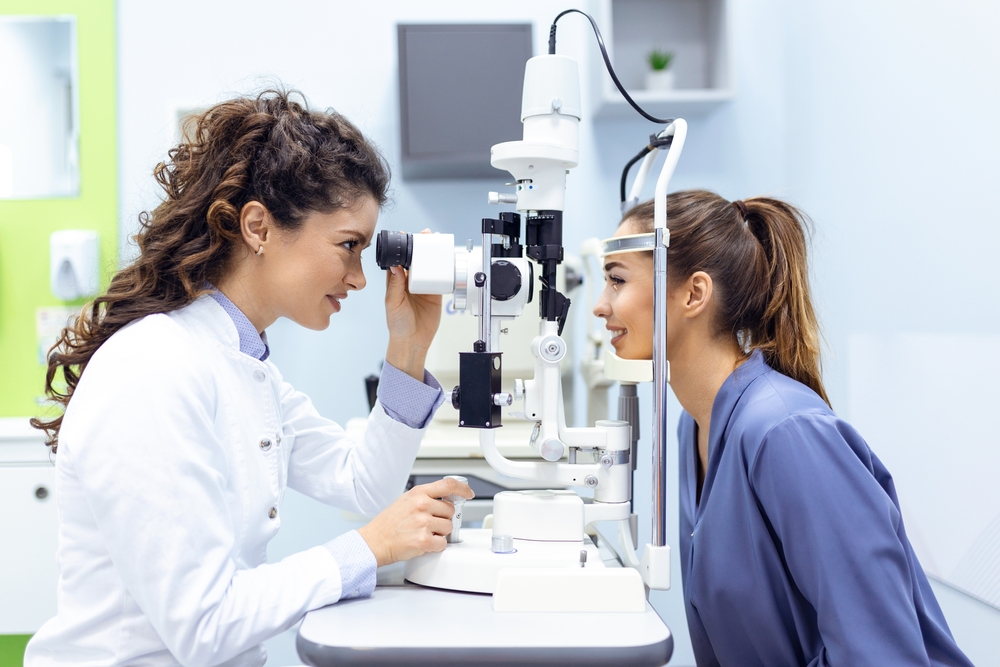All Categories
Featured

While most individuals comprehend the significance of safeguarding their skin from the sun, the unsafe impacts of ultraviolet (UV) rays on eye wellness frequently go neglected. However, too much direct exposure to UV radiation can bring about a range of eye issues, some of which can result in long-term damages. Whether you're taking in the sun on a summertime day or strolling outdoors on a cloudy mid-day, securing your eyes from UV rays is necessary. Right here's what you need to recognize about the results of UV radiation on your eyes and just how to secure them.
What Are UV Rays? UV rays are a kind of electro-magnetic radiation discharged by the sun. They are categorized into three types:
UVA Rays: These pass through deep right into the skin and eyes and can add to long-term damages. UVB Rays: These rays are more extreme than UVA and are mostly liable for surface-level damages to the eyes and skin. UVC Rays: These are one of the most dangerous but are mostly absorbed by the Planet's ozone layer and do not usually reach us. UVA and UVB rays are the primary wrongdoers behind eye-related damages.
Short-Term Effects of UV Exposure on the Eyes. Even temporary exposure to intense UV rays can damage your eyes. One common problem caused by this is photokeratitis, or "sunburn of the eye." Signs and symptoms of photokeratitis consist of:
Agonizing, red eyes. Level of sensitivity to light. Tearing or extreme watering. Temporary vision loss or blurry vision. Photokeratitis is generally momentary, yet it serves as a warning of just how damaging UV direct exposure can be, even in tiny doses.
Long-Term Impacts of UV Exposure. Prolonged exposure to UV radiation can bring about more significant and long-term eye conditions, such as:
Cataracts: UV rays can accelerate the formation of cataracts, a problem that creates clouding of the eye's natural lens, bring about fuzzy vision and, if unattended, loss of sight.

Macular Degeneration: UV direct exposure can harm the retina, particularly the macula, raising the danger of age-related macular degeneration (AMD), which influences central vision.
Pterygium: A growth of cells on the white component of the eye that can expand over the cornea, triggering discomfort, soreness, and vision troubles.
Pinguecula: UV exposure can create yellowish down payments to base on the conjunctiva, causing irritability and dryness.
Skin Cancer Around the Eyes: The fragile skin bordering your eyes is highly vulnerable to UV radiation, enhancing the danger of skin cancers like basic cell carcinoma and squamous cell cancer.
How to Secure Your Eyes from UV Rays. Protecting your eyes from UV rays is basic and needs a couple of mindful behaviors:
Purchase Quality Sun glasses: Choose sunglasses that obstruct 100% of UVA and UVB rays. Try to find labels that define "UV 400" defense. Wrap-around styles are optimal as they block UV rays from the sides as well.
Wear a Wide-Brimmed Hat: A hat with a brim at least 3 inches broad can substantially minimize UV exposure to your eyes and face.
Limit Direct Exposure During Top Hours: UV rays are greatest in between 10 a.m. and 4 p.m. If you need to be outdoors during these hours, make sure you're appropriately shielded.
Do Not Be Misleaded by Clouds: UV rays can permeate via clouds, so it is essential to wear sunglasses also on cloudy days.
Shield Your Eyes Year-Round: Snow, sand, and water can show UV rays, heightening their impacts. Eye security isn't just for warm summer season days-- ensure you're covered in all seasons.
Usage UV-Blocking Contact Lenses: Numerous contact lenses currently come with UV security. If you put on get in touches with, ask your ophthalmologist regarding lenses with integrated UV filters for added defense.
Encourage Eye Protection for Children: Kid's eyes are extra delicate to UV rays because their lenses are clearer, enabling even more radiation to reach the retina. See to it they wear sunglasses and hats throughout outside tasks.
Regular Eye Examinations. Regular check-ups with an eye care expert are important for early detection of any kind of UV-related damages. An optometrist or ophthalmologist can examine your eyes, suggest protective steps, and identify conditions like cataracts or macular deterioration early.
Final thought. UV rays position a considerable hazard to eye health, and their results can accumulate with time. With the ideal preventative measures, you can reduce these risks and secure your vision. By putting on UV-blocking sunglasses, limiting sun exposure throughout top hours, and staying regular with eye tests, you can guarantee your eyes remain healthy and your vision stays clear for years to find. Protecting your eyes from UV radiation isn't simply concerning convenience-- it's a crucial action in preserving your long-term eye wellness.
Latest Posts
Discover the Perfect Ceramic Tile Floor Covering at Carpet Interiors Floor & Home
Preventative Maintenance at Montclare Auto Repair: Protect Your Vehicle Operating Like New
Contact Us: Call Us Today for Reliable Auto Solutions & Repairs in Montclare
More
Latest Posts
Discover the Perfect Ceramic Tile Floor Covering at Carpet Interiors Floor & Home
Preventative Maintenance at Montclare Auto Repair: Protect Your Vehicle Operating Like New
Contact Us: Call Us Today for Reliable Auto Solutions & Repairs in Montclare